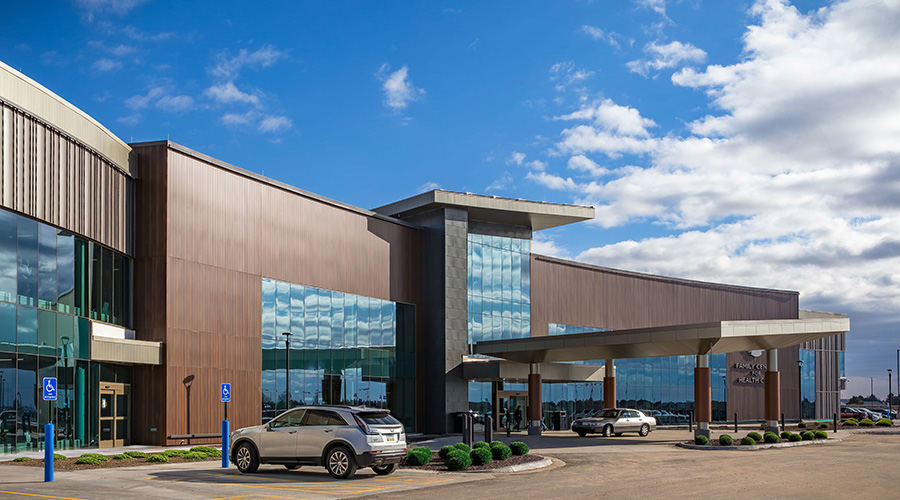Access control and security have entered mainstream conversations after a string of mass shootings in the United States. Shortly after a gunman killed 19 children and two teachers at an elementary school in Uvalde, Texas, many blamed unlocked and faulty doors for not preventing the attack. While access control systems are under scrutiny, door manufacturers are taking steps to ensure that safety and security begins with them. Healthcare Facilities Today talked with doors and hardware manufacturers about ways their products are helping healthcare facilities managers prioritize safety.
How are door products playing a role within access control systems? How can facilities managers improve safety features with door systems?
“Security features on automatic doors can include card access to acuate the sliding, swinging or revolving door to ballistic protected revolving doors. Automatic and manual doors can be fitted with a close monitor switch, which integrates with the facilities building management system that will notify the management system if the door is closed.”
— Ashley Estrada, product manager, Horton Automatic
“Facility managers considering electronic access control should understand that these systems are exponentially more secure than traditional mechanical locks. Modern access control systems are far more than just locks. They are valuable data and information systems that offer audit capabilities, flow analysis, space utilization and planning capabilities and more. Not to mention, electronic locks provide secure digital credentialing that can eliminate the costs and security risks associated with mechanical keys and key replacement.”
— Paul Canon, industry leader – healthcare, SALTO Systems
“Many large healthcare providers have multiple systems that control a variety of applications. On the door hardware side, features that allow an extra layer of electronic security for pharmaceutical rooms for audits tracking drugs and patient safety mitigate the risk that would be involved. The future is around the experience of the patient and the efficiency of resources and, to some degree, infection control. A patient can arrive at the parking lot and move through the building to their appointment seamlessly, with fewer human interactions to help reduce contact transmission. Further, mobile access control technology allows patients to be checked in and ready by the time they arrive at their elected surgery. Allegion’s research showed that use of electronic access control systems is up 10 percent in the past five years in hospitals, with the greatest areas of growth being surgical suits, behavioral health areas, department separators and elevators. Eight in ten hospitals are very interested in the data captured through access control systems. From usage information about the amount of foot traffic, diagnostics that can predict performance and maintenance needs, and even specific door information, such as current lock status, hospitals can utilize this data to maintain their facilities more efficiently.”
— Uriah Parker, project sales manager – Midwest, Allegion
Mackenna Moralez is the associate editor for Healthcare Facilities Today.

 Assisted Living Facility Violated Safety Standards: OSHA
Assisted Living Facility Violated Safety Standards: OSHA McCarthy Completes Construction of Citizens Health Hospital in Kansas
McCarthy Completes Construction of Citizens Health Hospital in Kansas California Tower at UC Davis Health Topped Out
California Tower at UC Davis Health Topped Out What 'Light' Daily Cleaning of Patient Rooms Misses
What 'Light' Daily Cleaning of Patient Rooms Misses Sprinkler Compliance: Navigating Code Mandates, Renovation Triggers and Patient Safety
Sprinkler Compliance: Navigating Code Mandates, Renovation Triggers and Patient Safety